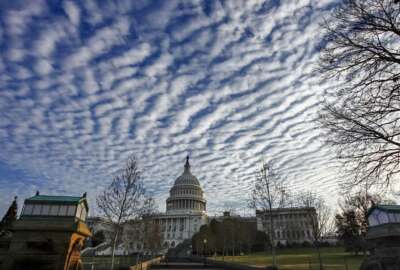
Shutdowns: the upside!
Many well-intentioned but unsophisticated people living beyond the beltway don't understand how important shutdown threats are to Washington-based politicians,...
Get the latest news about the government shutdown first. Sign up for our breaking news alerts.
Whether the next government shutdown is tomorrow night, next month or later this fall, a growing number of people think there has to be a better way. They argue that shutdowns are stupid, costly and totally unnecessary if politicians did their jobs rather than taking so much time off. This kind of thinking must be stopped. Shutdowns are not only necessary, but desirable. At least to lots of Washington-based members of the typing-and-talking class.
Taxpayers who feel that shutdowns are a bad idea may be well-meaning. But oh so unsophisticated! Life far outside the beltway has deprived them of knowledge about how the real world (aka DC-style) works. Or should, in our not-so-humble opinion!
Antishutdown types don’t get how necessary and efficient shutdown threats are to the large woe-is-me community based here—of which I am a card-carrying member—in Washington, D.C. Without them and other oft-contrived crisis, some of us would have to get real jobs.
Many of these outside the beltway rustics ask: Why shutdown the government and close National Parks and other “non-emergency” operations when, in the end, everybody will get paid? Some for not doing their jobs because Congress and the White House wouldn’t let them. To them it doesn’t make sense.
Someday misguided non-Washington folk they may come to see the reality of the situation. The need for back-to-back shutdown threats, with an occasional actual shutdown to show we weren’t faking it. Even when we were.
What these good, well-intentioned citizens don’t realize is how important shutdowns—especially the threat of a shutdown—is to Washington-based lawyers, lobbyists, analysts, journalists (oops!) and others who get paid for speculating about potential shutdowns, and for speculating and pontificating when they actually happen. It is a cottage industry that depends on regular threats of a shutdown to give them meaningful things to comment on.
Shutdowns are actually fairly rare. There was a record three-week long during the Clinton years and another two-week shutdown in 2013. Republicans, right or wrong, took most of the political heat for both nonevents. Workers who were forced to stay home got paid—eventually. But for folks on a tight budget or living paycheck to paycheck it was a hardship and sent tens of thousands to the feds-helping-feds charity—the Federal Employees Emergency Assistance fund—for the equivalent of payday loans.
But while some bureaucrats—and many federal contractors—are adversely affected by shutdowns, the political chattering, nattering class is thriving. The day is coming when members of Congress—especially in the House—will spend more time campaigning than they spend appropriating, budgeting and lawmaking. The House calendar for 2018 calls for more than 140 days away from the job—and that doesn’t include weekends.
Hopefully we’ll know about the pending shutdown within the next 12 to 48 hours. Meantime, it’s my turn to shovel the snow off the driveway here at WTOP/FederalNewsRadio world headquarters. But because of the shutdown threat I’m chained to this darn keyboard, talking to sources, making me too essential to do real work.
Maybe some other time.
Nearly Useless Factoid
South Florida is the only place in the United States where alligators and crocodiles coexist.
Source: Everglades National Park
Copyright © 2024 Federal News Network. All rights reserved. This website is not intended for users located within the European Economic Area.
Mike Causey is senior correspondent for Federal News Network and writes his daily Federal Report column on federal employees’ pay, benefits and retirement.
Follow @mcauseyWFED




